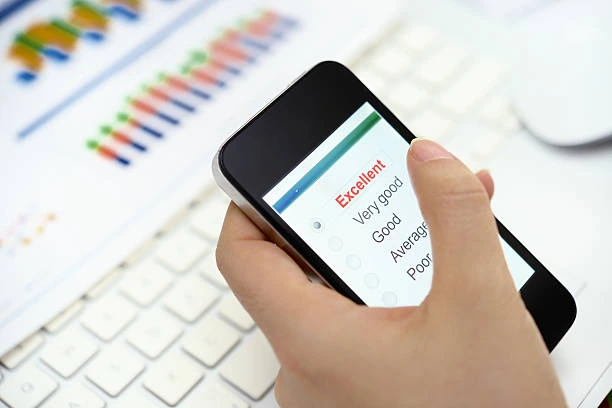The Importance of Post-Event Engagement

Why is post-event engagement so critical?
Post-event meetings or "debriefs" are essential to any successful event. They offer the opportunity to reflect on what worked well and what could be improved in future events. In today's fast-paced world, it's easy to assume that once an event is over, there's nothing left to do. But post-event engagement is vital to the long-term success of any business.
One of the most significant benefits of post-event meetings is the valuable feedback they provide. Event attendees are often happy to share their thoughts and opinions about their experiences. This feedback can be used to improve future events and better meet your target audience's needs.
Post-event meetings also help to maintain the momentum generated by an event. Events are often great places to build long-lasting relationships and create user-generated content. If these relationships are not maintained and fostered, they may fizzle out, resulting in lost opportunities for engagement and potential customers.
Many event planners also use post-event meetings to evaluate their marketing strategy and assess the event's success. They can review the event's marketing plan, track the reach and engagement of the event's social media platforms, and evaluate the overall ROI of the event.
Post-event meetings allow identifying areas where the event planning process could be improved. This helps event planners to streamline the planning process, reduce costs, and increase efficiency.
In summary, post-event meetings are essential for any event planner or business looking to create successful events. They provide valuable feedback, maintain momentum, evaluate marketing strategies, and identify areas where the event planning process could be improved. By engaging with attendees, reflecting on the event, and making changes based on feedback, event planners can create long-lasting relationships and build a loyal following of attendees eager to attend future events.
The art of the follow-up
Following up with event attendees is crucial in building meaningful connections and nurturing potential business relationships. Mastering the art of follow-up is essential for event planners and attendees alike.
Event planners can employ follow-up techniques to assess the event's success and gather valuable feedback. Sending out post-event surveys or scheduling follow-up meetings with attendees can provide insight into how to improve future events and better meet the needs of your target audience. This feedback can also be used to refine your event marketing strategy and assess the ROI of the event.
In a world where face-to-face interactions are increasingly limited, following up after an event is more important than ever. By mastering the art of follow-up, you can build long-lasting relationships, gather valuable feedback and establish yourself as a thought leader. So don't underestimate the power of a thoughtful message - it could be the beginning of a fruitful partnership.
What are some post-event engagement examples?
After successfully hosting an event, it's crucial that you don't let all the hard work go to waste. Post-event engagement is critical to ensuring that the investment you made in the event pays off in the long term. Whether it's a personal or virtual event, engagement after the event can help build long-lasting relationships with attendees and potential customers.
So, what are some post-event engagement examples?
Thank You's

When did you last receive a handwritten thank you note or a simple "thank you" text message? How did it make you feel? Chances are, it made you feel appreciated, valued, and happy. The truth is, expressing gratitude and saying thank you is one of the simplest yet most powerful ways to build positive relationships, whether in your personal life or business.
In business, saying thank you can go a long way in building loyal customers, fostering employee engagement and motivation, and even attracting new prospects. A simple thank you email or card after a successful project or purchase can show customers that you genuinely care about their satisfaction and are grateful for their business. It can also create a positive impression and encourage them to spread positive word-of-mouth about your brand.
Similarly, showing appreciation to your employees through recognition programs or personalized thank-you notes can boost their morale, motivation, and loyalty. It can also improve their overall performance and productivity as they feel valued and recognized for their contributions.
But saying thank you isn't just about gaining business advantages. It's also about creating positive emotional connections and building trust with others. By expressing gratitude, you acknowledge others' efforts and contributions, which can enhance your relationship and communication with them.
In today's fast-paced and busy world, it's easy to overlook the importance of saying thank you. We often take things for granted and forget to express our gratitude for the simple things in life. But incorporating appreciation and thankfulness into our daily lives can bring about positive changes for ourselves and the people around us.
So, the next time you're in a business meeting, finishing a project, or just spending time with a loved one, take a moment to express your appreciation and say thank you. It may seem like a small gesture, but its impact on building relationships and creating happiness can be immeasurable.
Post-Event Surveys

Hosting a successful event is a challenging feat. There are numerous aspects to consider and plan for, from choosing a venue to creating engaging content and a memorable experience for attendees. But even after the event is over, your job is not entirely done. It is essential to gather feedback and insights from attendees through post-event surveys.
Post-event surveys are an effective way to analyze your event's success and identify improvement areas. By asking attendees for their feedback and opinions, you can gain valuable insights into what worked well and what needs improvement. This information can help you make informed decisions for future events and refine your strategies and tactics to meet your audience's needs and expectations.
To get the most out of your post-event surveys, it is essential to ask the right questions. Open-ended questions allowing detailed responses can help you gather more qualitative data and insights. For example, rather than asking attendees to rate the event on a scale of 1-10, consider asking questions like "What did you enjoy the most about the event?" or "What could we improve for future events?"
In addition to gathering feedback on the event, post-event surveys can also help you gather insights into your marketing strategies and tactics. You can ask attendees how they learned about the event, which marketing channels they found most effective, and if they would recommend it to others.
The timing of your post-event survey is crucial, and you should send it out within a day or two after the event. This ensures that attendees' experiences are still fresh in their minds and increases the likelihood of them completing the survey. Consider using incentives such as discounts or exclusive offers to encourage attendees to participate and provide honest feedback.
Post-event surveys are not only beneficial for event organizers but also for attendees. They allow attendees to share their thoughts, opinions, and experiences and feel like their input is valued. This can help build long-lasting relationships with attendees and foster a sense of community around your events.
In conclusion, post-event surveys are crucial to event planning and management. They provide valuable feedback and insights that can help you create more successful events in the future. By asking the right questions and sending out surveys promptly, you can gather information to help guide your decision-making and improve your event strategies.
Emails

Emails have become an integral part of our lives, facilitating global communication and collaboration. Whether you are a student, a professional, or a business owner, you rely on emails to connect with others, share information, and stay organized. Here's a closer look at why emails are so important today.
First and foremost, emails are a fast and efficient way to send and receive information. Unlike traditional mail, which can take days or weeks to reach its destination, emails are delivered instantly, allowing you to send and receive messages in real-time. Email is particularly important in business; timely communication can mean the difference between success and failure. With emails, you can quickly share updates, discuss ideas, and collaborate with others, regardless of their location.
In addition to speed, emails are also incredibly versatile. You can use emails to send various content, including text, images, videos, and attachments. This means you can easily share documents, presentations, and other files without worrying about physical copies or storage space. Moreover, emails allow you to stay organized by creating folders, labels, and filters, making it easy to manage your inbox and keep track of important messages.
Emails also play a critical role in marketing and customer service. By sending targeted emails to your customers, you can keep them informed about your products and services, offer special deals and promotions, and build strong relationships with them over time. Emails can also be used to collect customer feedback, respond to inquiries and complaints, and address issues promptly and professionally.
Finally, emails are an essential tool for personal communication. Whether catching up with a friend, sending a birthday wish to a co-worker, or sharing news about a past event with an attendee, emails provide an easy and convenient way to stay in touch with loved ones. Moreover, emails serve as a digital record of your conversations, allowing you to revisit old messages with crucial information regarding meetings, events, or critical data and stay connected.
In conclusion, emails have become an essential communication tool in today's fast-paced world, facilitating collaboration, marketing, customer service, and personal connections. Whether you use emails for business or personal reasons, their speed, versatility, and convenience make them indispensable in our daily lives.
Content Sharing

Content sharing is an essential aspect of digital communication and marketing strategy. It involves distributing valuable information across various online platforms, such as articles, blog posts, videos, and social media updates. Content sharing aims to reach a wider audience, build brand awareness, and establish trust and credibility with potential customers.
Content sharing helps to build brand awareness. By consistently publishing high-quality content that provides value to your audience, you can establish your brand as a trusted source of information in your industry. This helps keep your brand top-of-mind when potential customers seek products or services in your niche.
Moreover, content sharing can help you establish credibility and trust with your audience. You can demonstrate your expertise and build trust with potential customers by providing accurate, well-researched information and engaging with your audience meaningfully. This can lead to increased loyalty and long-term relationships with your customers.
Another benefit of content sharing is the potential for user-generated content. When you encourage your audience to share your content, they become brand advocates and help to spread the word about your brand to their audience. For example, to increase post-event engagement, you can post photos and videos from your past event in the hope attendees will interact with the post. Furthermore, user-generated content can provide valuable insights into what your customers are interested in and what type of content resonates with them.
In conclusion, content sharing is a powerful tool for building brand awareness, establishing credibility, and post-event engagement. By consistently providing high-quality content that provides value to your audience, you can help your brand stand out in a crowded marketplace and establish long-term relationships with your attendees.
Conclusion
In conclusion, post-event engagement is crucial for businesses looking to maximize the impact of their events. By following up with attendees, sharing valuable content, and staying top-of-mind, businesses can ensure that their events are not just one-off experiences but the start of a long-term relationship with their audience.
With the right strategies and tools, post-event engagement can increase brand awareness, customer loyalty, and business growth. So don't let your events end at the closing ceremony - instead, use them as a springboard for ongoing engagement and relationship-building with your audience.
Business Events  Your All-in-One Event Management Platform
Your All-in-One Event Management Platform
Host Events with Ease! Events.org's comprehensive event management platform makes it easy to optimize, automate and maximize your organization's entire charitable event calendar.Events.org Benefits:
✓ Simple, Affordable Pricing for Paid Events: $1 per Transaction!
✓ FREE Events are always FREE
✓ Host & Manage Any Event
✓ Dedicated Customer Support
✓ Branded Event & Donation Pages
✓ Donor and Contacts Management (CRM)
✓ Membership Management
✓ Conference Management
✓ Volunteer Management
BONUS: Free access to the iBid's Mobile Auction AutoPilot™ - This automation tool saves you time & stress while streamlining auction tasks. Manage auction items and payment processing, including express checkout & digital receipts!